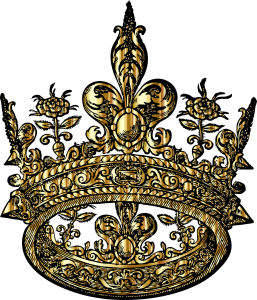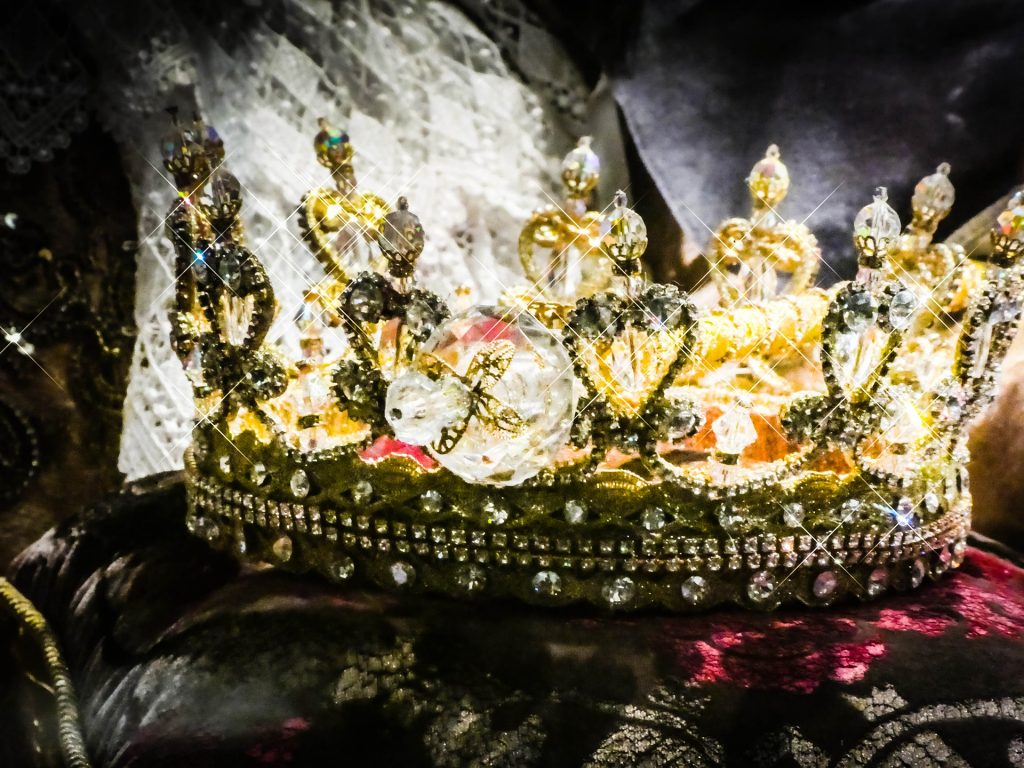 If you were a king, what kind of legacy would you leave? I and II Chronicles follows the sad, roller coaster account of Judah’s rulers. Comparing the first three is enlightening.
If you were a king, what kind of legacy would you leave? I and II Chronicles follows the sad, roller coaster account of Judah’s rulers. Comparing the first three is enlightening.
King Saul wowed the citizens with his height and good looks. Relying on his outward appearance he lacked inner strength. In reality, he was insecure and a coward at heart. When challenged, he compromised and lied.
King David, Israel’s second king, loved God, loved His Word, and trusted Him. In contrast to King Saul, the prophet Samuel called David a man after God’s own heart (I Samuel 13:14). We know from Scripture that David’s father and older brothers thought him insignificant and that he spent years fleeing from crazed King Saul in the wilderness. David seemed the least likely person to ascend to Israel’s throne. Yet through all his trials David believed God’s promises and repeatedly turned to the Lord for help. Challenges chiseled godly character into David.
 King Solomon, in contrast, rarely faced trials. Born royalty, raised in the palace, Solomon enjoyed a life of ease. At Solomon’s coronation ceremony, King David urged him to turn his heart toward God and to follow God’s ways (I Chronicles 28). Perhaps David saw signs of selfishness in his son.
King Solomon, in contrast, rarely faced trials. Born royalty, raised in the palace, Solomon enjoyed a life of ease. At Solomon’s coronation ceremony, King David urged him to turn his heart toward God and to follow God’s ways (I Chronicles 28). Perhaps David saw signs of selfishness in his son.
After David’s death Solomon built a massive army and hired thousands of local and foreign workers to fulfill his extensive building project. Leaders from nearby countries paid him tribute each year, and his traders brought back extravagant goods from far off lands. David had been content with a simpler palace, but Solomon went over the top in creating a ridiculously opulent, garishly lavish lifestyle for himself.
 Now the weight of gold that came to Solomon in one year was 666 talents of gold, besides what the traders and merchants brought; and all the kings of Arabia and the governors of the country brought gold and silver to Solomon. He made three hundred shields of beaten gold, using three hundred shekels of gold on each shield; and the king put them in the house of the forest of Lebanon (2 Chronicles 9:13-14, 16-17).
Now the weight of gold that came to Solomon in one year was 666 talents of gold, besides what the traders and merchants brought; and all the kings of Arabia and the governors of the country brought gold and silver to Solomon. He made three hundred shields of beaten gold, using three hundred shekels of gold on each shield; and the king put them in the house of the forest of Lebanon (2 Chronicles 9:13-14, 16-17).
Soldiers don’t need golden weapons. Those shields mainly symbolized Solomon’s wealth and power–the things he wanted to magnify. Clearly, Solomon was self absorbed, protecting himself from challenges.
 So, when faced with difficulties, which king shall we emulate? The people pleaser, the God pleaser, or the self pleaser? It’s easy to focus on our first world problems, maybe even finding ourselves in a place of despondency, as Solomon did in Ecclesiastes. Surrounding ourselves with creature comforts feels good temporarily but cannot actually help us. If we (by most accounts the world’s richest citizens) find ourselves gloomy or depressed over life’s challenges, I suggest we follow David’s example and turn our gaze toward God.
So, when faced with difficulties, which king shall we emulate? The people pleaser, the God pleaser, or the self pleaser? It’s easy to focus on our first world problems, maybe even finding ourselves in a place of despondency, as Solomon did in Ecclesiastes. Surrounding ourselves with creature comforts feels good temporarily but cannot actually help us. If we (by most accounts the world’s richest citizens) find ourselves gloomy or depressed over life’s challenges, I suggest we follow David’s example and turn our gaze toward God.
Why are you in despair, O my soul? And why have you become disturbed within me? Hope in God, for I shall again praise Him for the help of His presence (Psalm 42:5*)
 God’s true riches of love and grace can help us through any trial.
God’s true riches of love and grace can help us through any trial.
*See also Psalm 43:5

